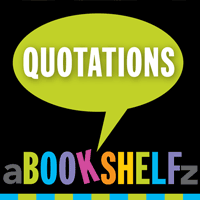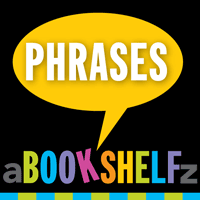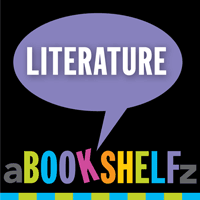 I recently came across a fascinating three-volume work titled Hours in a Library published in 1874 by Leslie Stephen (1832-1904). Stephen was a British author, critic, historian, and early humanist activist. He is not as well-known as his daughter, Virginia Woolf, recognized as one of the leading modernist 20th-century writers, who introduced stream of consciousness as a form of storytelling and founded the highly influential Bloomsbury Group. Hours in a Library is a brilliant collection of critical essays on the work of Charlotte Bronte, Samuel Taylor Coleridge, Daniel Defoe, George Elliot, Charles Kingsley, Sir Walter Scott, Mary Shelley, and several other British writers. The 3-volume set has been republished several times, most recently by the Folio Society in 1991. Volume 1 contains a special treat for bibliophiles — a delightful collection of quotes about books and libraries from notable authors from Bacon to Shakespeare. The seven-page section titled “Opinions of Authors” follows the table of contents. Enjoy these eloquent testimonials to the printed word.
I recently came across a fascinating three-volume work titled Hours in a Library published in 1874 by Leslie Stephen (1832-1904). Stephen was a British author, critic, historian, and early humanist activist. He is not as well-known as his daughter, Virginia Woolf, recognized as one of the leading modernist 20th-century writers, who introduced stream of consciousness as a form of storytelling and founded the highly influential Bloomsbury Group. Hours in a Library is a brilliant collection of critical essays on the work of Charlotte Bronte, Samuel Taylor Coleridge, Daniel Defoe, George Elliot, Charles Kingsley, Sir Walter Scott, Mary Shelley, and several other British writers. The 3-volume set has been republished several times, most recently by the Folio Society in 1991. Volume 1 contains a special treat for bibliophiles — a delightful collection of quotes about books and libraries from notable authors from Bacon to Shakespeare. The seven-page section titled “Opinions of Authors” follows the table of contents. Enjoy these eloquent testimonials to the printed word.
OPINIONS OF AUTHORS
Libraries are as the shrines where all the relics of the ancient saints, full of true virtue, and that without delusion or imposture, are preserved and reposed. (Bacon, Advancement of Leaming)
We visit at the shrine, drink in some measure of the inspiration, and cannot easily breathe in other air less pure, accustomed to immortal fruits. (Hazlitt’s Plain Speaker)
What a place to be in is an old library! It seems as though all the souls of all the writers that have bequeathed their labours to the Bodleian were reposing here as in some dormitory or middle state. I seem to inhale learning, walking amid their foliage; and the odour of their old moth-scented coverings is fragrant as the first bloom of the sciential apples which grew around the happy orchard. (Charles Lamb, Oxford in the Long Vacation)
My neighbours trunk me often alone, and yet at such times I am in company with more than five hundred mutes, each of whom communicates his ideas to me by dumb signs quite as intelligibly as any person living can do by uttering of words; and with a motion of my hand I can bring them as near to me as I please; I handle them as I like; they never complain of ill-usage; and when dismissed from my presence, though ever so abruptly, take no offence. (Sterne, Letters)
In a library we are surrounded by many hundreds of dear friends imprisoned by an enchanter in paper and leathern boxes. (Emerson, Books, Society, and Solitude)
Nothing is pleasanter than exploring in a library. (Landor, Pericles and Aspasia)
I never come into a library (saith Heinsius) but I bolt the door to me, excluding lust, ambition, avarice, and all such vices whose nurse is idleness, the mother of ignorance and melancholy herself; and in the very lap of eternity, among so many divine souls, I take my seat with so lofty a spirit and sweet content that I pity all our great ones and rich men that know not their happiness. (Burton, Anatomy of Melancholy)
I do not know that I am happiest when alone; but this I am sure of, that I am never long even in the society of her I love without a yearning for the company of my lamp and my utterly confused and tumbled-over library. (Byron, Moore’s Life)
Montesquieu used to say that he had never known a pain or a distress which he could not soothe by half an hour of a good book. (John Morley, On Popular Culture)
There is no truer word than that of Solomon: ‘There is no end of making books’; the sight of a great library verifies it; there is no end — indeed, it were pity there should be. (Bishop Hall)
You that are genuine Athenians, devour with a golden Epicurism the arts and sciences, the spirits and extractions of authors. (Culverwell, Light of Nature)
He hath never fed of the dainties that are bred in a book; he hath not eat paper, as it were; he hath not drunk ink; his intellect is not replenished; he is only an animal, only sensible in the duller parts. (Shakespeare, Love’s Labour’s Lost)
I have wondered at the patience of the antediluvians; their libraries were insufficiently furnished; how then could seven or eight hundred years of life be supportable? (Cowper, Life and Letters by Southey)
Unconfused Babel of all tongues! which e’er
The mighty linguist Fame or Time the mighty traveller,
That could speak or this could hear!
Majestic monument and pyramid!
Where still the shapes of parted souls abide Embalmed in verse; exalted souls which now
Enjoy those arts they wooed so well below, Which now all wonders plainly see
That have been, are, or are to be In the mysterious Library,
The beatific Bodley of the Deity!
(Cowley, Ode on the Bodleian)
This to a structure led well known to fame,
And called, ‘The Monument of Vanished Minds,’
Where when they thought they saw in well sought books
The assembled souls of all that men thought wise,
It bred such awful reverence in their looks,
As if they saw the buried writers rise.
Such heaps of written thought; gold ofthe dead,
Which Time does still disperse but not devour,
Made them presume all was fromdeluge freed
Which long-lived authors writ ere Noah’s shower.
(Davenant, Gondibert)
Books are not absolutely dead things, but do contain a progeny of life in them, to be as active as that soul whose progeny they are; nay, they do preserve as in a vial the purest efficacy and extraction of that living intellect that bred them. (Milton, Areopagitica)
Nor is there any paternal fondness which seems to savour less of absolute instinct, and which may be so well reconciled to worldly wisdom, as this of authors for their books. These children may most truly be called the riches of their father, and many of them have with true filial piety fed their parent in his old age; so that not only the affection but the interest of the author may be highly injured by those slanderers whose poisonous breath brings his book to an untimely end. (Fielding, Tom Jones)
We whom the world is pleased to honour with the title of modem authors should never have been able to compass our great design of everlasting remembrance and never-dying fame if our endeavours had not been so highly serviceable to the general good of mankind. (Swift, Tale of a Tub)
A good library always makes me melancholy, where the best author is as much squeezed and as obscure as a porter at a coronation. (Swift)
In my youth I never entered a great library but my predominant feeling was one of pain and disturbance of mind — not much unlike that which drew tears from Xerxes on viewing his immense army, and reflecting that in one hundred years not one soul would remain alive. To me, with respect to books, the same effect would be brought about by my own death. Here, said I, are one hundred thousand books, the worst of them capable of giving me some instruction and pleasure; and before I can have had time to extract the honey from one twentieth of this hive in all likelihood I shall be summoned away. (DeQuincey, Letter to a Young Man)
A man may be judged by his library. (Bentham)
I ever look upon a library with the reverence of a temple. (Evelyn, to Wotton)
‘Father, I should like to learn to make gold.’ ‘And what would’st thou do if thou could’st make it?’ ‘Why, I would build a great house and fill it with books.’- (Southey, Doctor)
What would you have more? A wife? That is none of the indispensable requisites of life. Books? That is one of them, and I have more than I can use. (David Hume, Burton’s ‘Life.’
Talk of the happiness of getting a great prize in the lottery! What is that to opening a box of books? The joy upon lifting up the cover must be something like that which we shall feel when Peter the porter opens the door upstairs, and says, ‘Please to walk in, Sir.’ (Southey, Life)
I would rather be a poor man in a garret with plenty of books than a king who did not love reading. (Macaulay)
Our books… do not our hearts hug them, and quiet themselves in them even more than in God? (Baxter’s Saint’s Rest.
It is our duty to live among books. (Newman, Tracts for the Times, No. 2)
What lovely things books are! (Buckle, Life by Huth)
Whether the collected wisdom of all ages and nations be not found in books? (Berkeley, Querist)
Read we must, be writers ever so indifferent. (Shaftesbury, Characteristics)
It’s mighty hard to write nowadays without getting something or other worth listening to into your essay or your volume. The foolishest book is a kind of leaky boat on a sea of wisdom; some of the wisdom will get in anyhow. (Oliver Wendell Holmes, Poet at the Breakfast Table)
I adopted the tolerating measure of the elder Pliny — ‘nullum esse librum tam malum ut non in aliqua parte prodesset.’ [Translated from Latin: “no book is so bad that nothing good can be had from some part of it.”] (Gibbon, Autobiography)
A book’s a book, although there’s nothing in’t. (Byron, English Bards and Scotch Reviewers)
While you converse with lords and dukes,
I have their betters here, my books;
Fixed in an elbow chair at ease
I choose companions as I please.
I’d rather have one single shelf
Than all my friends, except yourself.
For, after all that can be said,
Our best companions are the dead.
(Sheridan to Swift)
We often hear of people who will descend to any servility, submit to any insult for the sake of getting themselves or their children into what is euphemistically called good society. Did it ever occur to them that there is a select society of all the centuries to which they and theirs can be admitted for the asking? (Lowell, Speech at Chelsea)
On all sides are we not driven to the conclusion that of all things which men can do or make here below, by far the most momentous, wonderful, and worthy are the things we call books? For indeed, is it not verily the highest act of man’s faculty that produces a book? It is the thought of man. The true thaumaturgio virtue by which man marks all things whatever. All that he does and brings to pass is the vesture of a book. (Carlyle, Hero Worship)
Yet it is just
That hero in memory of all books which lay
Their sure foundations in the heart of man,
That I should here assert their rights, assert
Their honours, and should, once for all, pronounce
Their benediction, speak of them as powers
For ever to bo hallowed; only less
For what we are and what we may become
Than Nature’s self, which is the breath of God
Or His pure word by miracle revealed.
(Wordsworth, Prelude)
Take me to some lofty room,
Lighted from the western sky.
Where no glare dispels the gloom,
Till tho golden eve is nigh;
Where the works of searching thought,
Chosen books, may still impart
What the wise of old have taught,
What has tried the meek of heart;
Books in long dead tongues that stirred
Loving hearts in other climes;
Telling to my eyes, unheard.
Glorious deeds of olden times:
Books that purify the thought,
Spirits of the learned dead.
Teachers of the little taught,
Comforters whon friends are fled.
(Barnes, Poems of Rural Life)
A library is like a butcher’s shop ; it contains plenty of meat, but it is all raw; no person living can find a meal in it till some good cook comes along and says, “Sir, I see by your looks that you are hungry; I know your taste; be patient for a moment and you shall be satisfied that you have an excellent appetite!” (G. Ellis, Lockhart’s Scott)
A library is itself a cheap university. (H. Sidgwick, Political Economy).
0 such a life as he resolved to live
Once he had mastered all that books can give!
(Browning)
I will bury myself in my books and the devil may pipe to his own. (Tennyson)
Words! words! words! (Shakespeare, Hamlet)
ENJOY THE BOOK. If you love reading Atkins Bookshelf, you will love reading the book — Serendipitous Discoveries from the Bookshelf. The beautifully-designed book (416 pages) is a celebration of literature, books, fascinating English words and phrases, inspiring quotations, literary trivia, and valuable life lessons. It’s the perfect gift for book lovers and word lovers.
SHARE THE LOVE: If you enjoyed this post, please help expand the Bookshelf community by FOLLOWING or SHARING with a friend or your readers. Cheers.
Read related posts: Words Invented by Book Lovers
Words for Book Lovers
Profile of a Book Lover: William Gladstone
Profile of a Book Lover: Sylvester Stallone
Most Expensive American Book
The World’s Most Expensive Book
The Sections of a Bookstore
Profile of a Book Lover: Rebecca Goldstein
To learn more about Alexander Atkins Design please visit www.alexatkinsdesign.com
 Most Americans spend about $2,000 to $2,500 a week when they go on vacation. Although it is well established that taking a vacation is good for your health, according to a U.S. Travel Association survey, more than 50% of Americans forfeit their paid time off. In the article, “How Taking a Vacation Improves Your Well-Being” in the Harvard Business Review (2023), Rebecca Zucker notes the many benefits of a vacation: (1) mental: greater opportunity for rest and sleep, which unclutters the mind, boosts creativity, and reduces stress, sadness, irritability, and anxiety; (2) physical: reduction in stress hormones and lower blood pressure, allowing immune system to recover, lowering risk of common illness (like colds and flu) and more serious illnesses, like heart disease; (3) soul: escaping the demands of the workday, a person can tune back into their authentic self, and seek inner reflection about the meaning of life and one’s journey. In short, we can say with a great deal of certainty that a vacation is salubrious. Salubrious is defined as favorable to or promoting well-being, health, or wholesomeness. The word is derived from the Latin salubris, meaning “promoting health,” derived from salus (“health, welfare”), which derived from the Proto-Indo-European root sol- (“whole, well-kept”). The word, pronounced “suh LOO bree us,” is often used to refer to the helpful effect of air or climate.
Most Americans spend about $2,000 to $2,500 a week when they go on vacation. Although it is well established that taking a vacation is good for your health, according to a U.S. Travel Association survey, more than 50% of Americans forfeit their paid time off. In the article, “How Taking a Vacation Improves Your Well-Being” in the Harvard Business Review (2023), Rebecca Zucker notes the many benefits of a vacation: (1) mental: greater opportunity for rest and sleep, which unclutters the mind, boosts creativity, and reduces stress, sadness, irritability, and anxiety; (2) physical: reduction in stress hormones and lower blood pressure, allowing immune system to recover, lowering risk of common illness (like colds and flu) and more serious illnesses, like heart disease; (3) soul: escaping the demands of the workday, a person can tune back into their authentic self, and seek inner reflection about the meaning of life and one’s journey. In short, we can say with a great deal of certainty that a vacation is salubrious. Salubrious is defined as favorable to or promoting well-being, health, or wholesomeness. The word is derived from the Latin salubris, meaning “promoting health,” derived from salus (“health, welfare”), which derived from the Proto-Indo-European root sol- (“whole, well-kept”). The word, pronounced “suh LOO bree us,” is often used to refer to the helpful effect of air or climate.

 If you walk into any used or antiquarian bookstore and ask to be directed to their books-on-books section and don’t receive a puzzled look, you know you are in the right type of bookstore. Many book lovers and collectors seek out books on books and those that are most coveted and rare can command a very high price. Fortunately, there are hundreds of books on books that are readily accessible and affordable. I encountered one of these, albeit an older one, originally published in the 1971 by Clarkson Potter. The book by British bibliophile Eric Quayle is appropriately titled The Collector’s Book of Books that considers English literature from the perspective of the book collector, educating collectors and would-be collectors what to look for in a book.
If you walk into any used or antiquarian bookstore and ask to be directed to their books-on-books section and don’t receive a puzzled look, you know you are in the right type of bookstore. Many book lovers and collectors seek out books on books and those that are most coveted and rare can command a very high price. Fortunately, there are hundreds of books on books that are readily accessible and affordable. I encountered one of these, albeit an older one, originally published in the 1971 by Clarkson Potter. The book by British bibliophile Eric Quayle is appropriately titled The Collector’s Book of Books that considers English literature from the perspective of the book collector, educating collectors and would-be collectors what to look for in a book.




 Have you ever looked at a crystal that seems to have an inner glow? Or have you look at a cat’s eyes in dim light or darkness and they seem to glow? Well, there’s a fancy word for that type of shimmering glow: chatoyant. Chatoyant, pronounced “sha TOY ant,” is defined as the changing in luster or color or more precisely, a changeable luster with an oscillating narrow band of white light. In gemology, it has a very specific meaning: the reflecting of a band of bright light reflected when a polished (but not faceted) gem is cut.
Have you ever looked at a crystal that seems to have an inner glow? Or have you look at a cat’s eyes in dim light or darkness and they seem to glow? Well, there’s a fancy word for that type of shimmering glow: chatoyant. Chatoyant, pronounced “sha TOY ant,” is defined as the changing in luster or color or more precisely, a changeable luster with an oscillating narrow band of white light. In gemology, it has a very specific meaning: the reflecting of a band of bright light reflected when a polished (but not faceted) gem is cut.